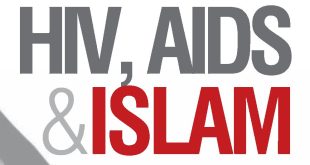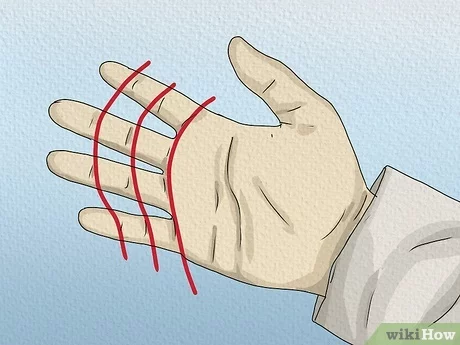
Are you having a hard time sticking to your new year resolutions? Perhaps you’ve been frustrated and disappointed over and over again seeing your grand plans of change fall apart?
Don’t worry, I’ve been there. We’ve all been there.
Let’s try again. This time, with the proper understanding and knowledge of habit-making.
Why I Got Interested in Habits
I remember coming out of the conference hall, all excited and motivated to be a better Muslimah. Listening to humbling reminders from an all-star shuyukh lineup and having conversations with numerous inspiring Muslimahs (or Muslims, if you’re a brother) tends to have that impact on people, especially me.
I went home and drew up a master plan of what my days would look like:
Tahajjud at 4 A.M., followed by an hour of the Qur’an, followed by some revisions for school before praying Fajr. Then I would burn the track before getting ready for school. I would then be on time for all my classes, come home, spend another hour with the Qur’an and listen to more lectures online. In between, I would pray all my prayers on time, including all the sunnah prayers, both before and after.
Things went great on the first day. I was roaring with enthusiasm. By the third day I was exhausted, but I pushed myself. By the fifth day, I had significantly reduced my sunnah prayers and my running shoes stood dejected by the door. By the seventh, I had suffered a total burnout.
I got depressed, demotivated and soon returned to my old ways. The cycle then repeats when a new conference comes into town. Instead of changing small habits over time, I tried to change my whole being in one shot.
And I know many of us are stuck in the same cycle too. A great tool that you can use to keep track of your progress achieved toward building (or destroying) a habit is ProductiveMuslim’s Habitator.
“In order for us to realize our God-given potential within our lifetimes, we must break the cycles of stagnation that prevent us from doing so by abandoning methods that have proven ineffective in fulfilling our responsibilities as people committed to Islam. We can accomplish this only by changing our current condition — this requires courage, commitment and above all, critical introspection.” — Shaykh Hamza Yusuf (Agenda to Change our Condition)

The Heart, The Brain, and Habits
In my quest to learn more about habits and how we can change them, I decided to look at both Islamic and Western literature to compare them and, In sha Allah, get an understanding from both perspectives. Surprisingly,many of the actions recommended and concepts spoken about in both literatures are somewhat the same. The crucial differentiating factor, however, is that Western literature tends to focus on the brain as the main cause of actions and habits, while Islamic literature brings them back to the heart.
In this two-part series, we will explore how we can inculcate better habits in our lives. The first part will explore habit-making through purifying the heart, while the second part of the series will touch on habit-making from the perspective of cognitive science.
At the end of each part, I will share some small actionable steps that we can take to better ourselves, one habit at a time, In sha Allah!
Habits and the Heart

Prophet Muhammad ṣallallāhu 'alayhi wa sallam (peace and blessings of Allāh be upon him) said: “Truly in the body there is a morsel of flesh which, if it be whole, all the body is whole and which, if it be diseased, all of it is diseased. Truly it is the heart.” [Bukhari & Muslim]
As Muslims, we should be clear that in Islamic thought, the center of consciousness and conscience is actually the heart and not the brain as Western science tells us. Shaykh Hamza Yusuf said in recent times scientists have discovered that there are more than 40,000 neurons in the heart that communicate with the brain, meaning that not only does the brain send messages to the heart, but the heart does the same to the brain as well.
In a study conducted in the 1970s, for instance, two physiologists discovered that when the brain sent messages to the heart, “the heart did not automatically obey the messages. Sometimes the heart sped up, while other times it slowed down, indicating that the heart itself has its own type of intelligence”. [1]
That said, the study of the brain is a relatively new science, while our knowledge of the heart and soul will always be limited as the Qur’an has mentioned:
“And they ask you, [O Muhammad], about the soul. Say, “The soul is of the affair of my Lord. And mankind have not been given of knowledge except a little.” [Qur’an: Chapter 17, Verse 85].
In a hadith found in the book “Purification of the Heart” by Imam Al-Mawlud, it is written that no one fully believes until his desires [and thus, actions] are in accordance with what the Prophet ṣallallāhu ‘alayhi wa sallam (peace and blessings of Allāh be upon him) had brought [Imam Nawawi, #41]. Due to this, Imam al-Mawlud explained that there is thus no salvation “like the heart’s salvation, given that all the limbs [and organs] respond to its desires”.
The basic rule then, according to Imam al-Mawlud, is to ask Allah subḥānahu wa ta'āla (glorified and exalted be He) for assistance, and then work to consistently purify the state of our hearts.

Three Realizations
There are three kinds of realizations we need to have before we take the steps to make changes in our lives. The first is knowing the state of our heart, the second is having the right intentions towards change, while the third is understanding the nature of change.
Realization 1: Knowing Our State
The first thing to realize in trying to take on good habits or remove bad ones is the state of our heart — the source of all actions. Only through reflection will we be able to know ourselves and who we really are, and this self-awareness is the basis of achieving good.
Reflection, with the knowledge that it is impossible to attain a pure heart, would then lead to shame and humility before Allah subḥānahu wa ta'āla (glorified and exalted be He), causing us to implore Him to change our states. And truly, no power nor change happens except by the will of Allah subḥānahu wa ta'āla (glorified and exalted be He).
Suggested action points:
- Look deep within yourself.
- Keep a daily journal.
- Write down all the things you do and feel; the conversations in your heart and mind.
- Take note of your weaknesses, your strengths, what makes you tick and what drives you.
- Learn to see yourself for who you really are
- Take note of the state of your heart.
Realization 2: Having the Right Intentions for Change
The second realization that we need to have is to understand that whatever change we intend to undertake should stem from the need to worship Allah subḥānahu wa ta'āla (glorified and exalted be He) better. Our raw intentions should root not from our ego, desires and wants, but from the pinnacle of servanthood to Him who has created us.
When we make the intentions to be a better parent, child, or student, etc., it makes it easy for us to give up and tell ourselves, “It’s okay, better luck next year.” Also, the reason of being better here is the “I” of the self, instead of the “You” of Allah subḥānahu wa ta'āla (glorified and exalted be He).
However, when we take our intentions a step further and pin our intentions to the need to serve Allah subḥānahu wa ta'āla (glorified and exalted be He) out of our immense love to Him and the Prophet ṣallallāhu 'alayhi wa sallam (peace and blessings of Allāh be upon him), then our intention for change is sincerely for Him and nothing else.
Suggested action points:
- Check your intentions: Always do things for the sake of Allah subḥānahu wa ta'āla (glorified and exalted be He). When we do things for Allah subḥānahu wa ta'āla (glorified and exalted be He), we do things with ihsaan, with love and perfection; we don’t tell ourselves “better luck next year”. When we do things for Allah, we focus on the “You” and not the “I”.
- Shift your inner dialogue to one which is intent on giving instead of receiving, for in the giving is barakah and aid from Allah subḥānahu wa ta'āla (glorified and exalted be He).
Realization 3: Understanding the Nature of Change
The third realization is to understand that the nature of mankind in adopting changes is through gradual changes, and not through an extreme makeover.
Although there are instances of people changing drastically literally overnight (for Allah subḥānahu wa ta'āla (glorified and exalted be He) is capable of doing anything He wishes), the nature of change generally is through gradual adoption of new habits.
When the ruling that alcohol is forbidden was revealed, it did not come down in a hard and fast
overnight commandment from Allah subḥānahu wa ta'āla (glorified and exalted be He). Instead, He subḥānahu wa ta'āla (glorified and exalted be He) sent down three gradual revelations that would ease the ruling gradually into the lives of Muslims:
- First revelation: “They ask you about wine and gambling. Say, “In them is great sin and [yet, some] benefit for people. But their sin is greater than their benefit”…” [Qur’an: Chapter 2, Verse 219].
- Second revelation: “O you who have believed, do not approach prayer while you are intoxicated…” [Qur’an: Chapter 4, Verse 43].
- Third revelation: “O you who have believed, indeed, intoxicants, gambling, [sacrificing on] stone alters [to other than Allah ], and divining arrows are but defilement from the work of Satan, so avoid it that you may be successful” [Qur’an: Chapter 5, Verse 90].
We should do the same when we plan to overhaul our habits. Start small and gradually take further steps to make the change.
Suggested action points:
Break down the habit you are intending to adopt into smaller steps and start tackling the easiest of the steps first. For example:
- To make writing a daily habit, start by aiming to write freely for five minutes every morning. Then slowly increase the time to ten, then to fifteen, until you reach your daily target.
- To make running a daily habit, start by just putting on your running shoes and going for a 10-minute walk. Over time, gradually increase your speed and/or distance, until running daily becomes second nature to you.

Three Actions that Purify the Heart
With these realizations, we then need to work on purifying our heart and increasing our imaan, for a sound heart leads to sound limbs and actions. When the heart is good, everything else will follow, and habit-changing comes naturally, bi’iznillah.
To increase our imaan, the advice given by Habib Ali Shaykh, the discipline master of the school of Dar al-Mustafa in Yemen, is to do three things:
Read the Qur’an, make salawat upon the Prophet ṣallallāhu 'alayhi wa sallam
(peace and blessings of Allāh be upon him) and recite the shahadah.
Doing these actions in itself means the inculcation of new habits. To make things easier, refer to the three realizations we spoke about earlier:
- The state of our heart and self
- The right intentions to make
- The nature of change
Suggested action points:
- First, when you know the state of your heart and the state of yourself, then you know what you need to make it easier to read the Qur’an, make more salawat and recite the shahadah. For me, I realize that it is hard for me to read the Qur’an and make salawat extensively after each prayer due to my tight schedule, and so I dedicate each morning after Fajr prayers solely for these recitations. And when I know my heart is getting low on imaan, I increase my recitations, salawat and shahadah to fight against the disease.
Everyone’s needs and abilities differ according to each person’s state. Make strategies appropriate to your own.
- Second, when you have the right intentions, know with firm belief that Allah subḥānahu wa ta'āla (glorified and exalted be He) will make it easier for you to start inculcating that new habit.
“… Indeed, Allah will not change the condition of a people until they change what is in themselves…” [Qur’an: Chapter 13, Verse 11].
- Make lots of dua for Allah subḥānahu wa ta'āla (glorified and exalted be He) to make change easier for you. Ask Him to give you the knowledge and understanding that you need, the strength, determination and patience to carry out what you intend, and the remembrance that all changes come from Him and are made for Him.
- Third, when you understand the nature of change, you know that you have to start small, ‘small’ being that which is defined by your own abilities. If you have not been reading the Qur’an your whole life, start by reading half a page of the Qur’an each day. If that’s too hard, start with three verses. Then when you get better and more eloquent in your recitation, increase it to one page, and so on and so forth. The key here is to be consistent, and then to increase your actions gradually.
The Prophet ṣallallāhu 'alayhi wa sallam (peace and blessings of Allāh be upon him) was asked, “What deeds are loved most by Allah?” He said, “The most regular constant deeds even though they may be few.” [Bukhari]
- Lastly, to aid your journey in cleansing your heart, read the book “Purification of the Heart”, a translation and commentary of Imam Al-Mawlud’s “Mat-harat al-Qulub.” Like the doctor giving medicine to the patient, the book diagnoses specific ailments of the spiritual heart, and then suggests the steps to take to cure that ailment. Feeling envious of someone? Turn to page 27. Having negative thoughts? Turn to page 81. Harbouring obliviousness to blessings? Page 123 will tell you what you need to do.

To Be Continued…
I began this article by first addressing the heart, for in the heart sit our intentions.
Prophet ṣallallāhu 'alayhi wa sallam (peace and blessings of Allāh be upon him) said: “Deeds are considered by the intentions, and a person will get the reward according to his intention…” [Bukhari & Muslim].
If we make changes or adopt new habits to be a better this or a better that, chances are we will get to be a better this or a better that. However, if we make changes or adopt new habits to get closer to Allah subḥānahu wa ta'āla (glorified and exalted be He), then In sha Allah we will get closer Allah subḥānahu wa ta'āla (glorified and exalted be He).
This should be what we remember first and foremost when we think about habit-making.
“Actions are lifeless forms, but the presence of inner reality of sincerity within them is what endows them with life-giving Spirit.” – Ibn Ataillah, The Book of Wisdom
In the next article, I will elaborate on how we can use the discoveries made by cognitive science to assist us in our habit-making, In sha Allah.
May Allah subḥānahu wa ta'āla (glorified and exalted be He) purify our hearts and intentions, give us the means to carry out the right actions, and accept all the good that we do. Ameen!
So, which techniques have helped you most with developing habits? Which challenges did you face in the process? Please share your experiences, tips and tricks below so everyone can benefit, In sha Allah!
Post Disclaimer | Support Us
Support Us
The sailanmuslim.com web site entirely supported by individual donors and well wishers. If you regularly visit this site and wish to show your appreciation, or if you wish to see further development of sailanmuslim.com, please donate us
IMPORTANT : All content hosted on sailanmuslim.com is solely for non-commercial purposes and with the permission of original copyright holders. Any other use of the hosted content, such as for financial gain, requires express approval from the copyright owners.
 Sri lanka Muslims Web Portal Sri Lanka Muslims News Center
Sri lanka Muslims Web Portal Sri Lanka Muslims News Center
 Donate
Donate


